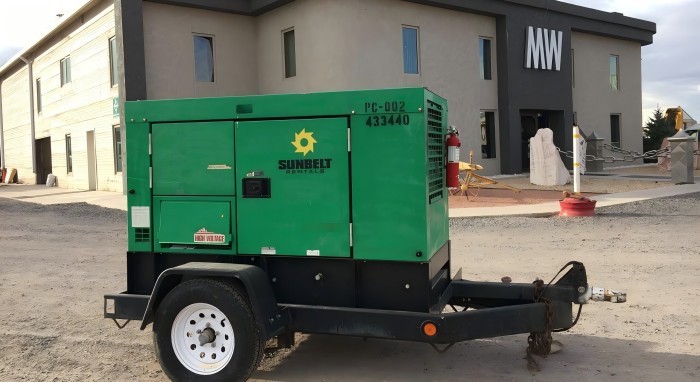Overspeed in a diesel generator occurs when the engine operates at speeds higher than its designed maximum. This condition can lead to severe mechanical damage, reduced efficiency, and potential failure of the generator. Understanding the causes of overspeed is essential for effective troubleshooting and prevention. This article explores the primary causes of overspeed in diesel generators and provides insights into how these issues can be addressed.
Fuel System Malfunctions
Fuel Supply Issues
One of the most common causes of overspeed in a diesel generator is problems with the fuel system. If the fuel supply system is malfunctioning, it can deliver more fuel than required to the engine. This excessive fuel can cause the engine to run faster than its designed speed. Issues such as a faulty fuel pump, clogged fuel filters, or a malfunctioning fuel injector can contribute to this problem. Ensuring that the fuel system components are well-maintained and functioning correctly is crucial to prevent overspeed.
Fuel Quality Problems
Poor-quality or contaminated fuel can also cause overspeed. Contaminants in the fuel can affect the engine’s performance and lead to erratic operation, including overspeed conditions. Regularly checking the quality of the diesel fuel and using proper filtration systems can help mitigate this risk.
Governor Failures
Mechanical Governor Issues
The governor is a critical component responsible for regulating the engine’s speed by controlling the amount of fuel injected. If the mechanical governor fails or becomes misaligned, it may not accurately regulate the engine speed, leading to overspeed conditions. Common issues include wear and tear, improper calibration, or mechanical faults within the governor. Regular maintenance and calibration of the governor are essential to ensure proper engine speed control.
Electronic Governor Malfunctions
Modern diesel generators often use electronic governors to regulate engine speed. Malfunctions in the electronic governor, such as faulty sensors, incorrect settings, or software issues, can result in overspeed. Regular diagnostics and software updates are necessary to maintain the functionality of electronic governors.
Mechanical Failures
Engine Component Wear
Over time, components within the diesel engine can experience wear and tear, affecting the engine’s performance. Worn-out components such as the turbocharger, pistons, or camshaft can lead to overspeed. Regular inspections and timely replacement of worn parts are crucial for maintaining optimal engine performance.
Broken or Malfunctioning Linkages
Linkages that connect the governor to the engine components can sometimes become damaged or malfunction. If these linkages fail, they may not accurately control the engine’s speed, resulting in overspeed. Checking and maintaining these linkages can help prevent such issues.
Inadequate Load
Unbalanced Load Condition
Diesel generators are designed to operate at specific load conditions. If the generator is running with an inadequate or unbalanced load, it may lead to overspeed. For example, if the generator is operating with too little load, the engine may run faster than intended. Properly balancing the load and ensuring the generator operates within its specified load range can help prevent overspeed.
Load Demand Fluctuations
Sudden fluctuations in load demand can also cause overspeed. If the load on the generator changes rapidly, the engine may struggle to adjust, leading to overspeed conditions. Implementing load management strategies and using automatic load adjustment systems can help mitigate this issue.
Electrical Faults
Electrical System Failures: Faults in the electrical system, such as issues with the control panel or wiring, can affect the generator’s operation and lead to overspeed. Electrical faults can disrupt the signals sent to the governor and other control systems, resulting in improper engine speed regulation. Regular maintenance and inspection of the electrical system can help identify and address potential faults.
Incorrect Engine Settings
Improper Calibration
Incorrectly calibrated engine settings can lead to overspeed conditions. This includes settings related to fuel injection, air-fuel ratio, and ignition timing. Ensuring that the engine is properly calibrated according to manufacturer specifications is essential for maintaining correct engine speed.
Incorrectly Set Governor Controls
The governor controls must be set accurately to regulate engine speed effectively. If these controls are set incorrectly, they may not regulate the engine speed properly, leading to overspeed. Regular calibration and adjustment of the governor controls can help prevent such issues.
Conclusion
Overspeed in a diesel generator can result from various causes, including fuel system malfunctions, governor failures, mechanical issues, inadequate load conditions, electrical faults, and incorrect engine settings. Addressing these causes involves regular maintenance, timely repairs, and proper calibration of engine components and systems. By understanding the root causes of overspeed and implementing preventive measures, you can ensure the reliable operation of your diesel generator and extend its lifespan. Regular inspections and maintenance are key to preventing overspeed and maintaining optimal generator performance.

